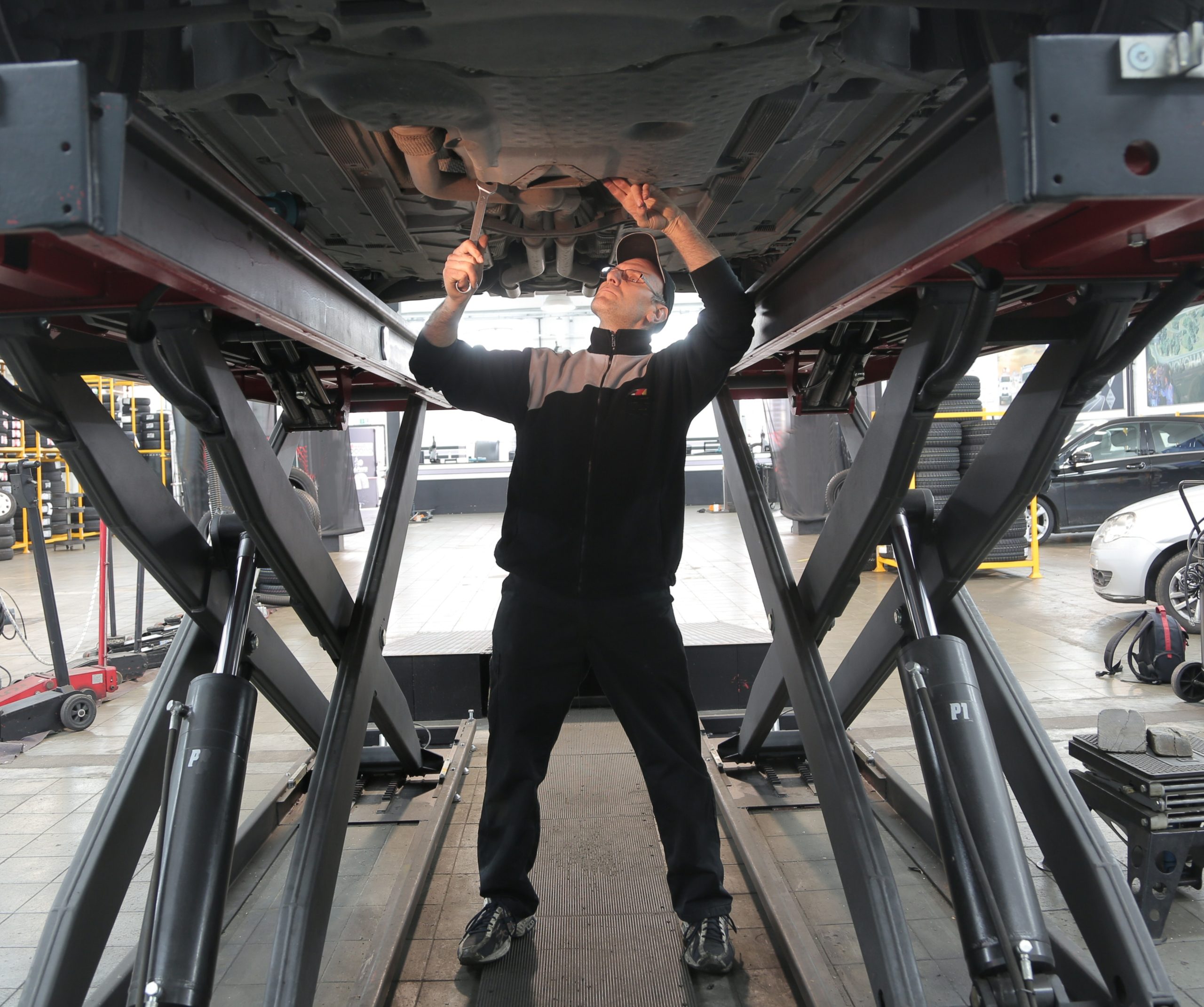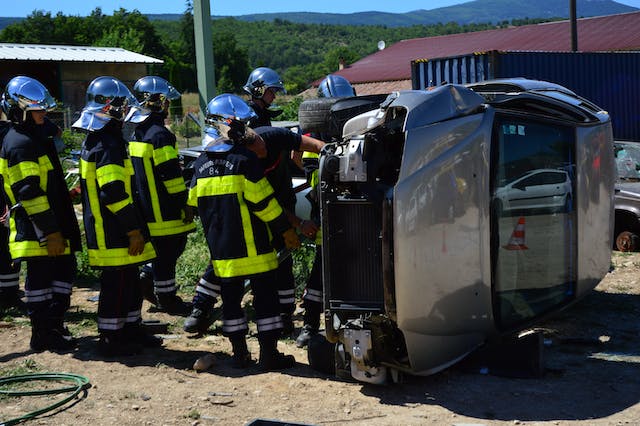DUI or Driving Under the Influence remains a severe concern for many jurisdictions worldwide. Ensuring that road users are not impaired is a primary responsibility of law enforcement. However, gathering irrefutable evidence during a DUI stop can be challenging. Thanks to technological advancements, the scope and capabilities of law enforcement have transformed dramatically, with police car computers emerging as a major player. This article dives deep into these systems, spotlighting their significant influence on DUI stops and evidence gathering.
The Evolution of Police Car Computers: A Brief History
Police cars, once considered just a mode of transportation with a siren, have evolved into mobile tech hubs. Integrating computers in these vehicles wasn't merely an upgrade; it was a revolution in how law enforcement operates.
- Early versions: Initially introduced as rudimentary communication tools, these systems primarily acted as basic tracking devices. They provided a digital channel for communication, replacing traditional radios, and enhanced the officer's situational awareness.
- Mid-stage evolution: As technology progressed, these systems integrated databases and software, enabling officers to run instant background checks or license plate searches. This allowed officers to gauge the potential threat or history of a stopped individual instantly, without waiting for control room responses.
- Modern-day: Today, these computers boast capabilities tailored for specialized law enforcement needs, including capturing and preserving evidence during DUI stops. Modern interfaces, integration with on-board cameras, and instant data analysis tools help officers make informed decisions on the field.
How Police Car Computers Enhance DUI Stops
The DUI stop procedure is not just about intuition and officer training; it's also about accurate data recording. The modern police car computer acts as an officer's digital assistant during these stops.
- Real-time Breathalyzer data recording and syncing: Directly connecting the Breathalyzer to the computer system ensures accuracy and immediate logging. This reduces human error and provides a clear digital record, eliminating disputes about BAC (Blood Alcohol Content) readings.
- Instant access to driver's DUI history: A quick search can pull up any previous DUI offenses, aiding the officer in understanding repeat offenses. Recognizing repeat offenders can influence decisions on arrests or penalties.
- Recording and archiving in-cruiser camera footage: Many DUI defenses revolve around disputing the officer's version of events, making recorded evidence invaluable. Video footage offers an unbiased record, showcasing both the driver's behavior and the officer's conduct.
- GPS logging to confirm the location of the stop: Pinpointing the exact location can sometimes be crucial, especially in disputed cases or borderline jurisdiction scenarios. Providing a precise stop location ensures clarity in jurisdiction and can be used to corroborate other pieces of evidence.
- On-the-spot printing of citations and reports: Modern police car computers come equipped with portable printers, enabling officers to provide violators with immediate documentation. Instant paperwork not only speeds up the process but also provides clarity and transparency to the accused.
Features Tailored for DUI Evidence Collection
Incorporating specialized software and hardware elements into these computer systems ensures they are finely tuned for DUI stops.
- Touch-screen interface: Modern interfaces allow for quick and intuitive data input, crucial during time-sensitive stops. Time saved on manual data entry allows officers to remain vigilant and observant during the stop.
- Integrated software with DUI-specific checklists: This helps ensure that officers follow the exact protocol during stops, reducing potential oversights. Uniformity in procedure ensures that evidence is gathered correctly and stands up in court.
- Direct link to state and national DUI databases: Access to comprehensive DUI databases provides officers with a wealth of information at their fingertips. Understanding a driver's history, especially concerning DUIs, can influence the officer's approach and decisions.
- Secure cloud storage for preserving evidence: As digital evidence becomes paramount, having secure storage solutions is crucial. Cloud storage not only ensures data safety but also provides easy access for authorized personnel during investigations or trials.
- Automated data backup: In case of system failures or crashes, it's vital that no evidence is lost. Automated backup systems provide redundancy, ensuring that data remains intact, especially from critical DUI stops.
Police Car Computer: Law Enforcement Solutions Beyond DUI
While our primary focus is the role of on-board computers during DUI stops, it's essential to note that these tools serve a plethora of functions vital to modern policing.
- Crime scene photo and data logging: Capturing real-time images and data at crime scenes provides an invaluable record for investigations. Visual evidence and immediate scene notes can guide investigations and serve as crucial evidence in courtrooms.
- License plate recognition and instant background checks: Automated license plate recognition can immediately alert officers about potential threats or stolen vehicles. Being forewarned allows officers to approach situations with the necessary caution and strategy.
- Real-time communication with central command: Instant and clear communication ensures officers receive timely support and updates. Such communication is critical during emergencies, pursuits, or when coordinating with other units.
- Access to national criminal databases: Beyond DUI offenses, officers can instantly pull up comprehensive criminal backgrounds. This aids in assessing potential threats and understanding a detainee's history.
- Enhancing officer safety through live location tracking: The ability of the central command to monitor officers' locations ensures rapid response during emergencies. This feature not only keeps officers safe but also aids in coordination during large operations or events.
Challenges and Concerns with Police Car Computers in DUI Scenarios
Every technological leap comes with its own set of challenges, and on-board computer systems are no exception.
- System malfunctions and data loss: Like all digital devices, police car computers can malfunction, jeopardizing vital evidence. Regular system checks and robust backup systems become paramount to ensure evidence isn't lost.
- Privacy concerns with data collection and storage: Storing personal information raises concerns about potential misuse or breaches. Proper encryption and strict data access guidelines are essential to maintain public trust.
- Potential for misuse or over-reliance on technology: Officers must ensure they don't wholly rely on technology, sidelining their training and intuition. Regular training sessions and protocol revisions can help strike a balance between tech usage and traditional policing methods.
- Ensuring up-to-date software for accurate information: Outdated software can lead to incorrect or incomplete information, affecting an officer's decision-making. Scheduled software updates and audits can ensure the systems are current and reliable.
- The training required for officers to utilize these tools effectively: With every system upgrade, officers must be trained to harness the tool's full potential. Continuous education ensures that both veteran officers and new recruits are adept at using these advanced systems.
The Future of Police Car Computers in DUI Enforcement
The horizon of technological advancements promises an even more integrated and sophisticated approach to DUI enforcement.
- Integration of AI and machine learning for predictive analytics: Future systems might predict DUI hotspots based on historical data. This can aid departments in deploying resources more effectively, potentially preventing DUI incidents.
- Enhanced biometric systems for driver identification: Beyond traditional identification methods, biometric systems might play a crucial role. This ensures accurate driver identification, especially in cases where the driver is uncooperative or unconscious.
- Real-time data sharing between jurisdictions: Sharing DUI data across jurisdictions in real time can help in tracking repeat offenders more efficiently. A unified system can prevent offenders from slipping through jurisdictional gaps.
- The potential for VR and AR in training officers for DUI stops: Virtual Reality and Augmented Reality can simulate real-world scenarios, providing officers with immersive training experiences. Such training can prepare officers for a myriad of scenarios, ensuring they're always prepared.
- Strengthening data encryption and security protocols: As data becomes more integral, its protection becomes paramount. Advanced encryption methods will ensure that data remains confidential and safe from breaches.
Conclusion
As the landscape of law enforcement continues to evolve with technology, the role of police car computers, especially concerning DUI stops, becomes undeniably significant. While technology offers numerous advantages, it's equally crucial to ensure ethical considerations and ongoing training keeps pace. These computers are not just tools; they are extensions of the officer's commitment to safety, justice, and service.
Police car computers have undeniably revolutionized the landscape of DUI stops and evidence gathering. As we stand on the cusp of even more advancements, the symbiosis between technology and law enforcement becomes increasingly evident. It's not just about making tasks easier for the officers; it's about enhancing the precision, credibility, and effectiveness of law enforcement actions. Balancing this technological marvel with ethical considerations, officer training, and public trust will be the ongoing challenge and responsibility of police departments worldwide.







